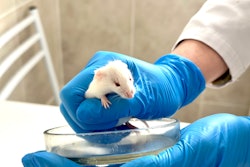
There is good news for parents of young children infected by COVID-19. A new study from Children’s Hospital in Philadelphia (CHOP) revealed that there is no link between contracting the virus and an asthma diagnosis in children ages one to 16. The study, “COVID-19 and Asthma Onset in Children,” appears in the May 2024 issue of Pediatrics.
The retrospective cohort study examined 27,000 children within the CHOP Care Network who received a polymerase chain reaction (PCR) test during the first year of the COVID-19 pandemic. During the 18-month evaluation, a positive COVID-19 test was not associated with a new asthma diagnosis.
“During the early days of the pandemic, we could isolate the effects of COVID-19 from other viruses and follow these patients long enough to observe the onset of asthma,” said first study author James P. Senter, MD, MPH, a pediatrician at CHOP. “We were also testing so frequently that we had a built-in control group to compare asthma symptoms and whether COVID-19 was a critical factor.”
Although a COVID-19 infection had no link to triggering an asthma diagnosis in young people, further analysis did reveal that children with known risk factors for developing pediatric asthma, such as race, food allergies, allergic rhinitis (or hay fever) and preterm birth, were more likely to develop asthma with a COVID-19 infection.
Respiratory viral infections early in life are known risk factors for asthma. This study contrasts data on other respiratory viral infections, such as rhinovirus or respiratory syncytial virus (RSV), which increase the risk for pediatric asthma development. Although multiple long-term health problems persist for some people who test positive for COVID-19, the authors concluded that an asthma diagnosis does not appear to be a risk for children — at least within 18 months of testing positive for COVID-19.
Newer COVID-19 variants have emerged since the study was conducted. However, researchers said many of the fundamental elements of the original virus, which seem to reduce the allergic response produced in infected patients, have remained intact in current variants.
“This well-powered study reaffirms risk factors we know contribute to asthma development and provides clinically useful information to pediatricians and providers on the absence of risk of developing asthma as a result of COVID-19,” said senior study author David A. Hill, MD, PhD, an attending physician with the CHOP Division of Allergy and Immunology. “We are hopeful that this study will put to rest an outstanding question on the minds of many families.”























